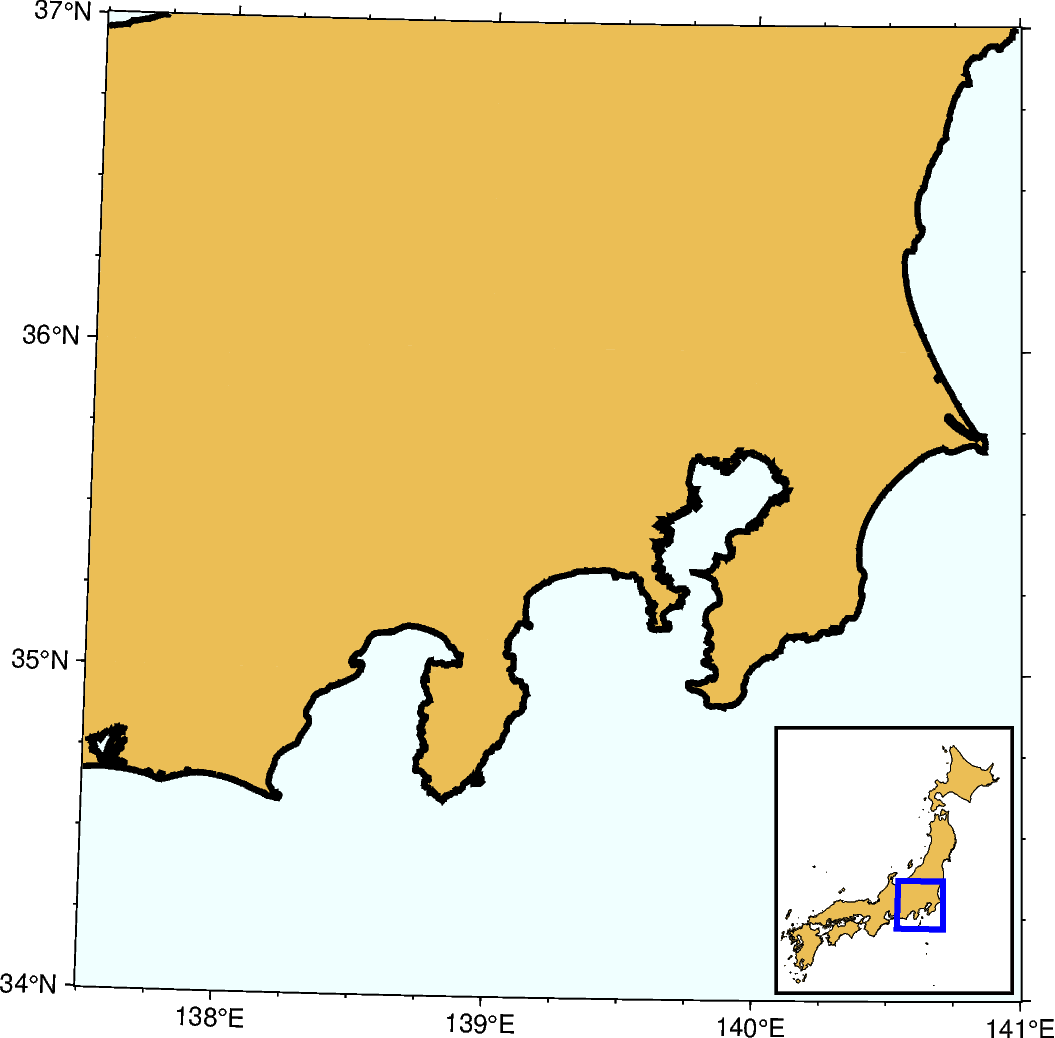Note
Go to the end to download the full example code.
Inset map showing a rectangular region
The pygmt.Figure.inset method adds an inset figure inside a larger
figure. The method is called using a with statement, and its
position, box, offset, and margin can be customized. Plotting
methods called within the with statement plot into the inset figure.

import pygmt
# Set the region of the main figure
region = [137.5, 141, 34, 37]
fig = pygmt.Figure()
# Plot the base map of the main figure. Universal Transverse Mercator (UTM)
# projection is used and the UTM zone is set to be "54S".
fig.basemap(region=region, projection="U54S/12c", frame=["WSne", "af"])
# Set the land color to "lightbrown", the water color to "azure1", the
# shoreline width to "2p", and the area threshold to 1000 km^2 for the main
# figure
fig.coast(land="lightbrown", water="azure1", shorelines="2p", area_thresh=1000)
# Create an inset map, placing it in the Bottom Right (BR) corner with x- and
# y-offsets of 0.1 cm, respectively.
# The inset map contains the Japan main land. "U54S/3c" means UTM projection
# with a map width of 3 cm. The inset width and height are automatically
# calculated from the specified ``region`` and ``projection`` parameters.
# Draws a rectangular box around the inset with a fill color of "white" and
# a pen of "1p".
with fig.inset(
position="jBR+o0.1c",
box="+gwhite+p1p",
region=[129, 146, 30, 46],
projection="U54S/3c",
):
# Highlight the Japan area in "lightbrown"
# and draw its outline with a pen of "0.2p".
fig.coast(
dcw="JP+glightbrown+p0.2p",
area_thresh=10000,
)
# Plot a rectangle ("r") in the inset map to show the area of the main
# figure. "+s" means that the first two columns are the longitude and
# latitude of the bottom left corner of the rectangle, and the last two
# columns the longitude and latitude of the upper right corner.
rectangle = [[region[0], region[2], region[1], region[3]]]
fig.plot(data=rectangle, style="r+s", pen="2p,blue")
fig.show()
Total running time of the script: (0 minutes 0.331 seconds)